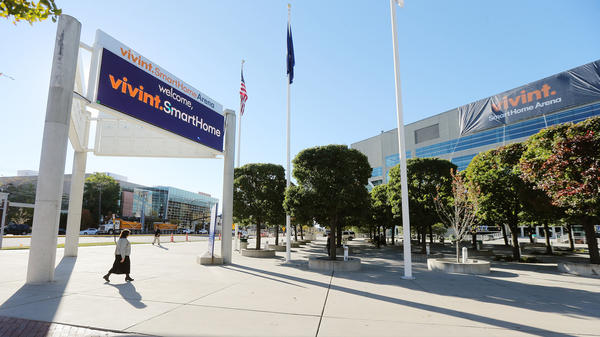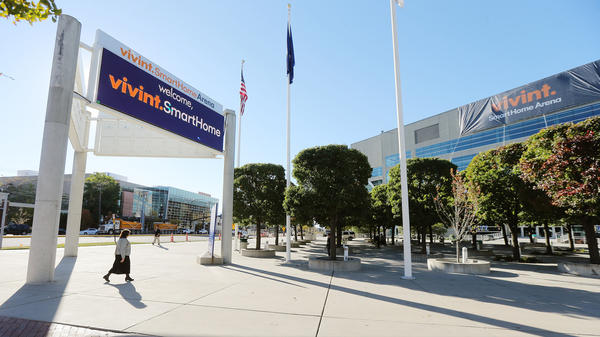Blog Post
Insight: SLC support for Vivint Smart Home Arena makes economic sense
By: Natalie Gochnour
Originally published in the Deseret News
If you are like me, you begin to get excited this time of year for the start of the NBA basketball season and our own Utah Jazz. The Jazz have been busy lately, making personnel moves that will make us a playoff-caliber team. Even more important to the long-term success of the Jazz and downtown Salt Lake City is the $125 million renovation occurring at Vivint Smart Home Arena. I commend the Redevelopment Agency of Salt Lake City for using tax increment financing to support this important investment.
The relationship between tax policy and economic development is one of the trickiest areas of government. There is an old adage that reads: “If you want less of something, tax it; if you want more of something, subsidize it.” By agreeing to use tax increment financing for the renovation of one of the NBA’s oldest arenas, members of the Salt Lake City Council made a clear public policy statement: They unanimously want the benefit that comes from more Utah Jazz basketball and other entertainment options hosted in a modern, world-class venue in the heart of the Intermountain region.
Importantly, the City Council structured the deal in a way that incentivizes development, increases revenue for the various taxing entities (such as the Salt Lake City School District), and manages risk for the city. Here’s how it works:
The Larry H. Miller Group of Companies will pay $125 million this year for renovations to the facility. This investment will be an economic benefit to the community, increase the value of property in the surrounding area, and create additional property tax revenue over time. A portion of the new property tax revenue ($22.7 million over 25 years) will be used to offset the initial investment. If the value isn’t created, the reimbursements will not occur. In this way, the greater Salt Lake area receives public policy’s version of the triple double: economic benefit, increased government revenue and minimal risk.
Some people squirm when they see any sort of public-private partnership because they are rightly concerned about the use of public funds. I know I do. But this performance-based deal has been carefully structured to serve the public interest. I also think it’s fair to point out that partnerships in public finance happen all the time for both businesses and households.
Because we value the American dream of home ownership, homeowners get a 45 percent exemption on their property taxes. Because we value charitable organizations like the United Way or The Road Home, individuals receive a charitable deduction on their income taxes. And, because we value renewable energy, historic preservation and energy efficiency, taxpayers receive tax credits to incentivize desired behavior.
The use of tax increment financing for Vivint Smart Home Arena is a similar decision. Because we value the economic contribution of the arena, the City Council has partnered with the LHM Group to benefit the entire region.
One way to think of the partnership is to remember the stellar combination of John Stockton (the NBA’s all-time leader in assists) and Karl Malone (the NBA’s second all-time scoring leader). Their individual success required a partnership of passing and scoring.
In the same way, the City Council is providing an assist to the LHM Group. In turn, the LHM Group is creating economic points for the entire region. Both the assist and the points wouldn’t happen without the other.
Vivint Smart Home Arena is an economic jewel in the city and the region. Residents and visitors alike have enjoyed Jazz games, concerts, rodeos, ice shows and other events in the building. It supports a substantial base of hotels and restaurants and is a source of community pride.
I believe the new investment in the arena will ensure many more years of benefit to our community. To the Miller family I say “Thank you.” And to the Salt Lake City Council I say, “Well done.” This decision will be remembered as a tremendous deal for Salt Lake City and our state.
Natalie Gochnour is the associate dean of the David Eccles School of Business and director of the Kem C. Gardner Policy Institute.


